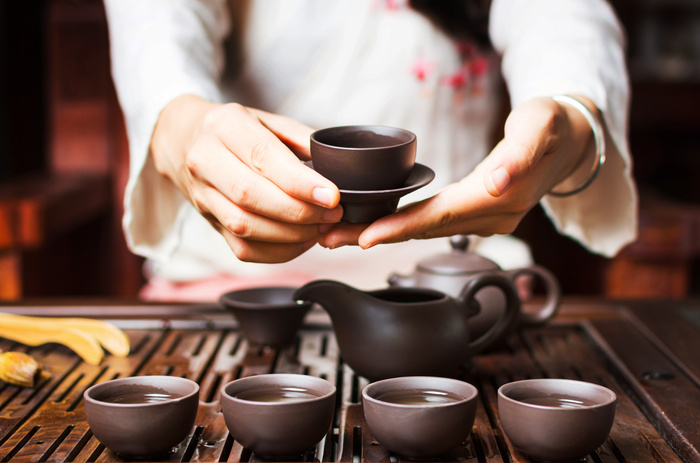Translated By Tara Lau
In addition to giving lectures in the Zen hall, Zen masters often use “tactful words” to remind students not to fall into the trap of delusional thinking and discrimination while drinking tea and having meals. Therefore, there are many Zen koans and The quotations are all picked up casually in the dining room. The so-called “Yunmen Cake, Zhaozhou Tea”, especially “Zhaozhou Tea”, are often talked about by Zen practitioners (Volume 3 of “Biyan Lu”, Vernacular translation):
In the Tang Dynasty, the Zen school Monk Congjian in Zhaozhou was famous in both the government and the public, and monks often came in groups to ask questions.
One day several Yunshui monks came. Zhaozhou asked one of the monks, “Have you been here before?”
The monk shook his head: “I haven’t been here before!”
Zhaozhou said, “Please go and have tea!” The monk went there with a confused look on his face.
The abbot next to him found it difficult to understand Zhaozhou’s intention, so he asked: “Master, why?”
Why do people who have been there be called to have tea, and those who have never been there are also called to have tea? “
Zhaozhou clasped his hands and said, “Abbot!” The abbot noted.
Zhaozhou said to him: “Please go and have tea!”
Dear friends, one can enter the realm of zen enlightenment by finding our own path. The only thing others can do is to invite you to have tea, that is, to guide you on the path to self-enlightenment. These Yunshui monks responded to Zhaozhou’s questions with their ordinary minds and they were all unenlightened, so Zhaozhou invited them one by one to “have tea” which suggests that by the continual cultivation and practice of “meditation” of “having tea” in life. In light of this, one can thus enter the realm of zen enlightenment.
The abbot has been Zhaozhou’s disciple for several years, but he still approached Zhaozhou’s “Go have tea” with his ordinary thoughts, so the monk sent him away by saying “Go have tea!” “
Zen is like tea. It is intricately woven into our ordinary life. Why should we abandon the near and pursue the far. We should note that there is no way outside the heart. By the understanding and practice of the spirit of “having tea”, it becomes the core essential for practicing meditation and mindfulness, and realizing the life state aesthetics of “taste tea in zen”.
Even you are not a Zen practitioner, you should understand that as long as we live in the moment and strive to make it to the fullest. This is more practical than constantly pursuing unattainable dreams.
Chadao, the art of tea contains the virtues of quietness and tranquility. Whether you are practitioner of Zen, Tantra or Pure Land Buddhism, it aligns with the values and principles of Buddhism. After you finish your group meditation practice, you can try meet with a few close friends in a quiet environment, enjoying a cup of tea and exchange experiences on learning Buddhism. At this time, with no other distractions in mind, you can taste the tea leisurely. Even in silence, the minds are connected. It embodies a state of focused concentration experienced while indulging in the exquisite flavours of tea.

